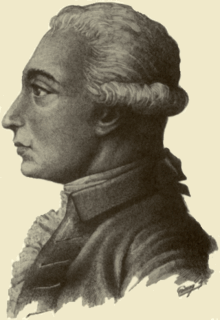A Quote by Michel de Montaigne
Repentance is no other than a recanting of the will, and opposition to our fancies, which lead us which way they please.
Related Quotes
One may disavow and disclaim vices that surprise us and whereto our passions transport us. But those which by long habit are rooted in a strong and anchored in a powerful will are not subject to contradiction. Repentance is but a denying of our will, and an opposition of our fantasies, which diverts us here and there.
There are still people who insist that we have to preach on repentance. Well, I disagree! I think we should do it God’s way – preach the goodness of God and allow the goodness of God to lead people to repentance. Such repentance will be true repentance. It will not be motivated by the fear of judgment and indignation. It will be a genuine repentance that is motivated by His grace, unconditional love and compassion. After all, our ability to love God stems from our first tasting His love for us.
In spite of everything, there is still no more wonderful vocation than to continue to tolerate events and to work on in the name of our mission, in the name of that spirit which lives on in our teaching and in our vision of humanity and art, the spirit which can lead us Jews down the true and just path. But along the way, peoples will spill our blood, and that of others.
And when I hear it said that God is good and He will pardon us, and then see that men cease not from evil-doing, oh, how it grieves me! The infinite goodness with which God communicates with us, sinners as we are, should constantly make us love and serve Him better; but we, on the contrary, instead of seeing in his goodness an obligation to please Him, convert it into an excuse for sin which will of a certainty lead in the end to our deeper condemnation.
I believe that a desirable future depends on our deliberately choosing a life of action over a life of consumption, on our engendering a lifestyle which will enable us to be spontaneous, independent, yet related to each other, rather than maintaining a lifestyle which only allows to make and unmake, produce and consume - a style of life which is merely a way station on the road to the depletion and pollution of the environment. The future depends more upon our choice of institutions which support a life of action than on our developing new ideologies and technologies.
The only initiation which I advocate and which I look for with all the ardor of my Soul, is that by which we are able to enter into the Heart of God within us, and there make an Indissoluble Marriage, which makes us the Friend and Spouse of the Repairer … there is no other way to arrive at this Holy Initiation than for us to delve more and more into the depth of our Soul and to not let go of the prize until we have succeeded in liberating its lively and vivifying origin.
The birth of Christ our Lord was more than an incident, it was an epoch in the history of the world... He came to teach us the character of God, and by example and precept pointed out the path which, if we walk in it, will lead us back into his presence. He came to break the bands of death with which man was bound, and made possible the resurrection by which the grave is robbed of its victory and death of its sting.
No one can help us to achieve the intimate isolation by which we find our secret worlds, so mysterious, rich and full. If others intervene, it is destroyed. This degree of thought, which we attain by freeing ourselves from the external world, must be fed by the inner spirit, and our surroundings cannot influence us in any way other than to leave us in peace.
Our possibilities of happiness are already restricted by our constitution. Unhappiness is much less difficult to experience. We are threatened with suffering from three directions: from our own body, which is doomed to decay and dissolution and which cannot even do without pain and anxiety as warning signals; from the external world, which may rage against us with overwhelming and merciless forces of destruction; and finally from our relations to other men. The suffering which comes from this last source is perhaps more painful to us than any other.
Each of us is free to move our consciousness through that infinite pattern of possibilities as we please. If we're filled with fears, or if we trust the fears of others, we'll choose a path in which our city falls into the sea, or a path in which a third world war vaporizes us, or whatever other disaster is most thrilling or horrifying or fascinating for us.
Through repentance the filth of our foul actions is washed away. After this, we participate in the Holy Spirit, not automatically, but according to the faith, humility and inner disposition of the repentance in which our soul is engaged. For this reason it is good to repent each day as the act of repentance is unending.
The answer to our cry which God gave in Jesus infinitely transcends our expectations, achieving a solidarity which cannot be human alone, but divine. Only the God who is love, and the love which is God, could choose to save us in this way, which is certainly the lengthiest way, yet the way which respects the truth about him and about us: the way of reconciliation, dialogue and cooperation.
God uses suffering to purge sin from our lives, strengthen our commitment to Him, force us to depend on grace, bind us together with other believers, produce discernment, foster sensitivity, discipline our minds, spend our time wisely, stretch our hope, cause us to know Christ better, make us long for truth, lead us to repentance of sin, teach us to give thanks in time of sorrow, increase faith, and strengthen character.







































